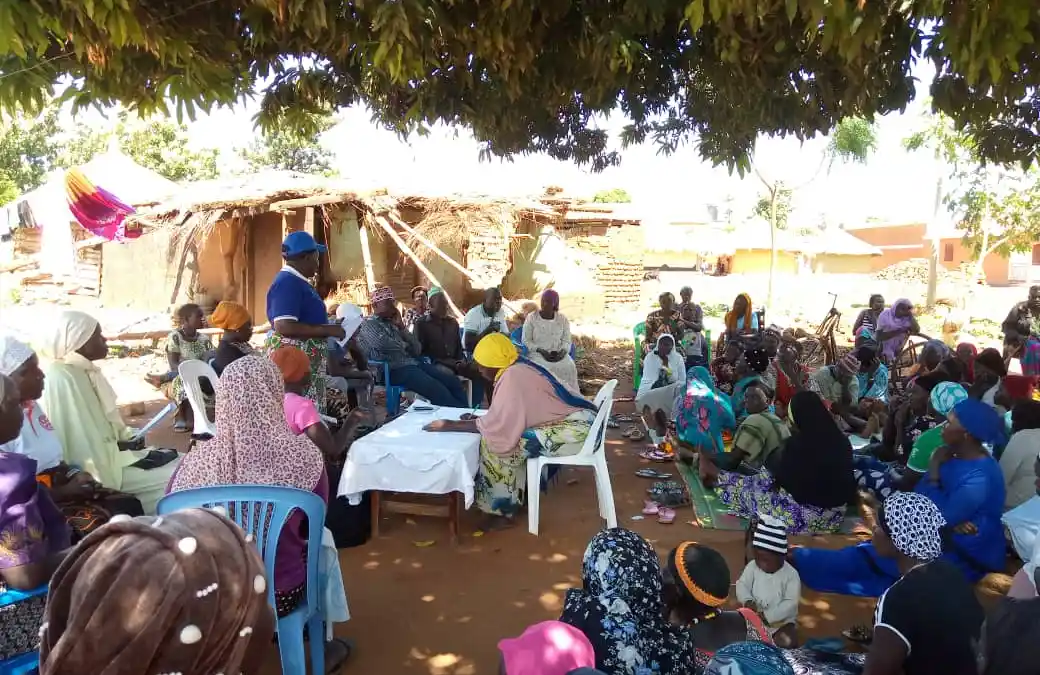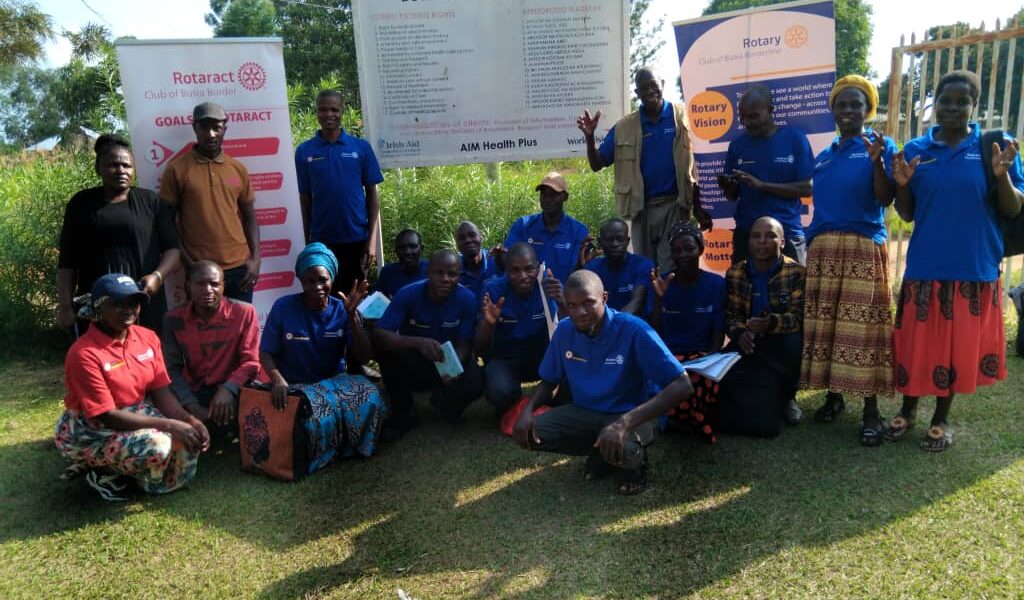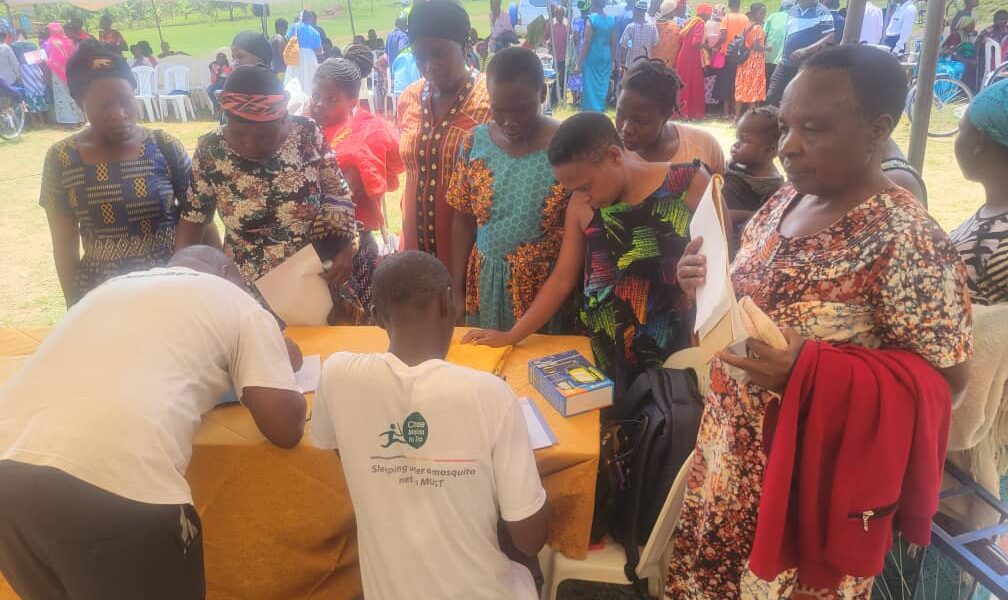Key data was collected through baseline and final surveys, reflecting the impact of these interventions.
The Starting Point: Baseline Survey Highlights
The baseline survey conducted on March 19, 2023, revealed critical challenges faced by 42 surveyed households in the Machangana Village, situated in the Yumbe district:
Limited access to sanitation: 43% of households had latrines (toilets).
Poor hygiene practices: 5% had access to handwashing stations.
Unsafe drinking water: 5% of surveyors treated their water.
Households spend an average of 3 hours and 36 minutes collecting water per day
Malaria Incidences: High incidences of malaria (27% of households), with 55% of case being children under the age of 5.
Additionally, 42% of children had experienced diarrhea in the preceding two weeks.
Household income: Per capita income was $85 per year
The Project’s Approach
The project’s approach was multifaceted, focusing on both malaria prevention and treatment within the community:
Training of VHTs
The Rotary Club of Yumbe and Ministry of Health co-led training sessions, equipping VHTs with the knowledge and tools needed for effective malaria control.
Malaria Testing and Treatment:
Central to the project was the deployment of Village Health Technicians (VHTs) for malaria testing and treatment, crucial in early detection and management.
RC Yumbe orchestrated a malaria test-and-treat activity on World Malaria Day, resulting in the testing of 2,473 individuals in three villages, of whom 1,503 tested positive for malaria.
These individuals received full doses of anti-malarial drugs. Trained community health workers aka Village health teams, played a pivotal role in conducting this initiative, emphasizing community participation in disease management.
Community Mobilization and Education:
Awareness campaigns, including radio talks, played a pivotal role in disseminating information on malaria prevention.
Sustainable Practices:
The project emphasized sustainable solutions, such as establishing Malaria Control funds and involving villagers on propagating and maintaining mosquito-repellent plants.
The Catalysts of Change:
Leadership of Local Women
The project’s effectiveness was largely due to the engagement of sixty local entrepreneurial women from the village. Their experience, respect within the community, and unique understanding of local challenges were instrumental in driving change.
These women played a pivotal role in motivating and supporting the villagers, exemplifying the health behaviors necessary for change. They successfully involved local elected leaders in the initiative, further strengthening their leadership’s impact and the project’s overall success.
Community Mobilization
The Rotary Club of Yumbe’s initiative fostered a sense of collective responsibility. Local elected leaders, Rotary Club members, and community members came together to improve health outcomes within Yumbe.
The community is currently collecting fees to maintain the updated infrastructure and services. They have seen what happens when they work together and want this progress to continue. Now, there are two microloan groups, each with 30 women, who can lead and pursue continued improvements within the village.
Final Survey Highlights
Fast forward to January 2024, and the landscape of Machangana changed drastically:
Enhanced sanitation:
Original: 43% of households had latrines.
Updated: 90% of households now have latrines, reflecting a weighted percent change of +150.76%.
Improved hygiene:
Original: 5% had access to handwashing stations.
Updated: 84% of households now have access to handwashing stations, a change that represents a weighted percent change of +2180.61%.
Safe water practices:
Original: 5% of surveyors treated their water.
Updated: 97% of households now treat their water, marking a weighted percent change of +2275.38%.
Health & Household improvements:
Malaria cases in the community reduced from 27% to 20% (weighted percent change of -58.01%).
Malaria cases for children under five reduced from 55% to 30% (weighted percent change of -78.07%).
Economic improvements:
The per capita income increased from $85 to $373 per year, which is a weighted percent change of +282.42%.
Efficiency in water collection:
Households reduced the time spent collecting water from an average of 3 hours and 36 minutes per day to just 15 minutes, a weighted percent change of -95.54%.
The Malaria Prevalence Eradication Among Rural Community – Yumbe District, Uganda Small Grant demonstrates an effective model for improving community health. This project is an example of how targeted interventions, community involvement, and capacity building can lead to sustainable health improvements, especially in resource-limited settings.



